Politics
Indonesia Maju 2045, Will This Program Become Possible?
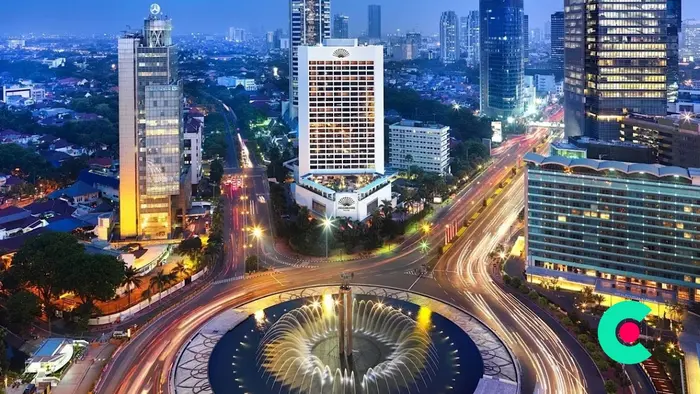
Do you think, Indonesia Maju 2045 program will be successful?
Well, Indonesia is one of the developing countries in Southeast Asia. The country, nicknamed the agrarian country, was formed on 17 August 1945 after being proclaimed by Ir. Soekarno, who became the first president of the Republic of Indonesia and Drs. Mohammad Hatta.
Then, Indonesia was built with the existence of four national pillars, namely Pancasila, NKRI, 1945 Constitution and Bhinneka Tunggal Ika. In addition, Indonesia is also known as a country rich in natural resources, has many islands stretching from Sabang to Merauke and many tribes, cultures and languages.
It is because of this wealth of natural resources that Indonesia has been colonized for centuries. Even so, do Indonesian citizens feel happiness and prosperity in life? Then why is Indonesia categorized as a developing country and not a developed country? Here is a brief review of the definition of a developing country and can Indonesia become a developed country by 2045? Is this a reality or a mirage.
Identifying Indonesia as a Developing Country
Before we discuss about Indonesia Maju 2045, developing countries is a term for countries in the world that have relatively low standards of living, underdeveloped industrial sectors, lower-middle Human Development Index scores, and low per capita income.
The reason why Indonesia is still categorized as a developing country is its high population growth rate. In fact, Indonesia once occupied the 4th position in the world with the most populous population. With such a high increase in population comes an increase in the need for clothing, shelter and food. This is the most dominating reason that Indonesia is a
Of course, to manage this problem, the government must be clever in handling human resources that continue to decline. Moreover, the growth rate continues to increase, and this will also have an impact on poverty and hunger. If the number of births and growth increases, then the most important thing is to avoid shortages of clothing, food and shelter. The government must provide employment opportunities.
Meanwhile, there are differences in lifestyle between developed and developing countries. A developed country is a country that enjoys a relatively high standard of living through high technology and an equitable economy. Meanwhile, developing countries are countries whose people have a moderate level of welfare or quality of life or are in development.
Will Indonesia Maju 2045 Program Success?
Be a developed country will not easy, so but for us is not impossible if one day Indonesia will become an “Indonesia Maju 2045”. Indonesia is a rich country, with a lot of natural resources, both animal and vegetable. Of course, this can be the main capital in improving the welfare of the people.
To become a developed country, of course, is not as easy as one might think. There are several stages that must be carefully planned. Then, increase the potential of resources. Meanwhile, to increase this potential, it must be realized, among others, by increasing nationalism, the quality of human resources, building infrastructure, and economic transformation.
In addition, all components of the nation (Central Government, Regional Government, business world, educational institutions and society) must work together and be committed to making Indonesia advanced. They must work together with the government to build an advanced Indonesia.
This is in line with the value contained in Pancasila in the third point, which reads “Unity of Indonesia” of course with this unity that will create a better Indonesia.
The State Budget (APBN)
In Indonesia Maju 2045, a key driver of the nation’s progress is the quality of its human resources. Thus, since 2019, the main focus of the State Budget (APBN) is the development of better human resources. The development of Indonesian human resources should focus on character, skill-orientated education and mastery of technology for each individual.
Indonesian education must be able to produce human resources who have nationalism and high integrity. Graduates of education, including higher education, are expected to be able to create jobs; connect with industry (link and match); and develop innovation and creativity by mastering technology. Non scholae sed vitae discimus (education must offer provisions for life, not just produce diplomas).
One of the main factors to create economic growth is the completeness of infrastructure facilities. Recognizing that this is a requirement to achieve an Indonesia Maju 2045, in 2014, the Indonesian government aggressively built the country’s infrastructure.
Infrastructure will boost the productivity of production factors; facilitate the flow of goods/services and people. It facilitates transport; and opens up isolated areas. Infrastructure will lead to equitable development and enhance Indonesia’s investment competitiveness.
Economic Growth
In Indonesia Maju 2045, to achieve good and sufficient economic growth, Indonesia needs to transform its economy to increase productivity and high added value in all sectors.
As for how to promote economic transformation by reinforcing priority economic sectors, enhancing export-oriented manufacturing industries, utilizing information technology, increasing the capacity of the people’s economy, enhancing creative industries and trying to love with domestic products.
To grow the country’s economy, the government and society have to be focused on developing a variety of homegrown products. But, developing domestic products should also have added value and competitiveness so that they are competitive in domestic and international markets. Thus, all parts of the nation must build love for local products.
The policy towards an advanced Indonesia Maju 2045 needs to be well planned. If the Indonesian people fail to plan well, it is the same as planning for failure. Therefore, a strong commitment is needed to make good arrangements.
Because it is meaningless, if it only becomes a hope without a proper plan. In additional, policies that have been well planned must be implemented consistently, structured, systematically and massively.
Whoever will be the leader of this nation in the future must have a commitment to implement the Indonesia Maju 2045 program, together with all Indonesians. There is no success without hard, smart work and national unity.
Thus, Indonesia Maju 2045 will become a fact not a mirage, when it gets closer, we can immediately face it with the plans that have been launched.
So, the point is that if you are going to achieve an Indonesia Maju in 2045, then the unity and enhancement of the economic sector, natural resources and human resources must be addressed and improved.
Then, what do you think about Indonesia Maju 2045?
What Did Jokowi Say Regarding to Indonesia Maju 2045?
As President of Indonesia, Joko Widodo has built a long-term plan regarding Indonesia Maju 2045.
The President emphasized this when delivering a speech at the Annual Session of the MPR RI and the Joint Session of the DPR RI and DPD RI in the framework of the 78th Anniversary of the Proclamation of Indonesian Independence, in the Plenary Meeting Room, MPR/DPR/DPD RI Nusantara Building, Senayan, Jakarta, Wednesday (08/16/2023) morning.
“The government has prepared a total social protection budget when added up from 2015 to 2023 of IDR 3,212 trillion, including the Healthy Indonesia Card, Smart Indonesia Card [KIP], College KIP, PKH [Family Hope Program], Basic Food Cards, as well as protection “to the elderly, people with disabilities and other vulnerable groups, as well as reskilling and upskilling the workforce through Job Training Centers and the Pre-Employment Card Program,” said the President on bestengagingcommunities, Wednesday ( March, 20 ).
Second, the government also continues to intensify downstream industrial policies which can not only increase job creation which results in national productivity but also provide maximum added value.
“This is where the role of the green economy and downstream sectors plays as our window of opportunity to achieve progress, because Indonesia is very rich in natural resources, including mineral materials, plantation products, marine products, as well as new and renewable energy sources,” closed what Jokowi said on the same page.
The downstreaming that Indonesia wants to carry out, said the President, is downstreaming that carries out technology transfer, utilizes new and renewable energy sources, and minimizes environmental impacts.
This downstreaming must also optimize local content, partner with micro, small and medium enterprises (MSMEs), farmers and fishermen, so that the benefits are felt directly for the small people.
Now, what is your response?
Seeing that our prediction, our notes through this article about Indonesia Maju 2045 will be a witness. Especially if everything the government targets is achieved. Now what is your response, let’s discuss with us on below!
Read Also: Prediction of Global Economy in 2024
Politics
The Future of Indonesia Economy and Strength of USD
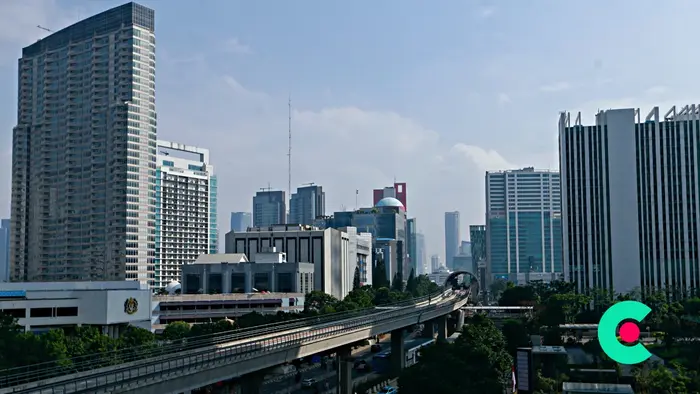
The weakening of the Rupiah always becomes bad news for the future of Indonesia economy. Even though this is not the first time, it can do a huge damage to the local economy especially during high inflation right now.
According to the economists in Indonesia, they already warn that the recent weakening of the Rupiah against the USD could put more pressure on people’s purchasing power, along with the high prices of imported goods.
Which Sectors will be Affected for the future of Indonesia economy?
The strengthening of the dollar will clearly affect the future of Indonesia economy. This is because this country is still quite dependent on imports. If the Rupiah exchange rate weakens, various sectors that depend on imports will suffer major losses.
So, what are the sectors that will be most affected by these economic conditions? The following is a list and explanation.
1. Foods
This one is actually quite ironic since the future of Indonesia economy still relies on imports to meet domestic needs. Most of the imported foods are actually staple foods like rice, flour, sugar, beans, onion, and etc. If the weakening of the Rupiah becomes worse, the government needs to make proper regulations to keep the price of basic necessities.
Just like what we explain above, with this condition imported goods like food will become more expensive and make low income families unable to afford it. This can also cause a chain effect because with the rise of food prices, the prices of other necessities will also rise.
2. Manufacture Industry
You may have heard about this word but do you know what manufacturing really means for the future of Indonesia economy? Manufacturing is a branch of industry that operates equipment, machines and labor in a process medium to process raw materials, spare parts and other components to be produced into finished goods that have selling value.
Even though Indonesia is rich with natural resources, this country mainly produces and exports raw material. To produce better products, they still depend heavily on imported materials. In fact, it is not uncommon for them to export raw materials and import finished products.
This is certainly very unfortunate considering that the Indonesian manufacturing sector is actually able to compete with foreign products. With the strengthening of the dollar, it will be difficult for the local manufacturing industry to survive because production costs will increase significantly while income remains the same.
3. Pharmacy
For the future of Indonesia economy, It is not a secret that most of the raw materials that are used for the pharmaceutical industry in Indonesia are mostly imported. Even according to some experts, the ratio of imported material in the industry has already reached 90%.
Just like the food sector, Indonesian pharmaceuticals, which should be an important sector, are still dependent on imports. In fact, this industry has a big role in the national health system.
If the price of imported materials increases, the price of medicines will also increase drastically. This is certainly dangerous because it could burden the state’s health insurance budget.
4. Electronic
Do you know if Indonesia is one of the biggest smartphone markets in the world? With a population around 270 million, this country is a massive potential market for electronic devices. Unfortunately, Indonesia may be seen only as a consumer and not producer of these electronic goods.
Why? Because the majority of the products are imported, mainly from China. The future of Indonesia economy actually has few electronic and technology companies but most of them also still rely on imported parts. So, if the dollar rises, the price of these products will get more and more expensive.
5. Energy
For information, even though Indonesia is able to produce its own energy like oil, gas, and electricity, it is not enough to meet domestic consumption. Because of this, Indonesia still has to import large quantities of oil from other countries to maintain its energy needs.
The future of Indonesia economy has actually started to reduce the amount of imported energy but the number is still very high. And for information, almost the majority of the imported energy will be used as subsidies for its people.
This type of subsidies actually has become the subject of debate among officials and the public because the numbers are very large and continue to burden the state budget along with the strengthening of the dollar.
The following is some information regarding the sectors most affected by the rise in the dollar. It is necessary to understand that this problem is actually quite serious because it is related to the future of Indonesia economy sustainability. So, let’s pray that the Indonesian government can handle this problem as soon as possible.
Read Also: Indonesia Maju 2045, Will This Program Become Possible?
Politics
Prabowo-Gibran’s First 100 Day Programs has been Prepared
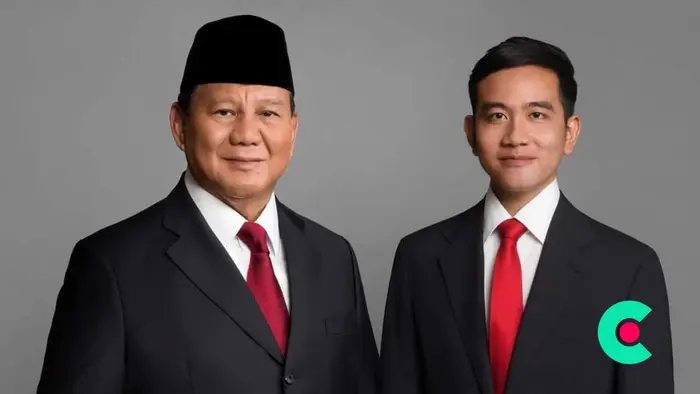
After we discuss that Prabowo expects to make Indonesia as a developed country, there will be a question, so what are of his first 100 day programs? Every country in this world has a different culture and different way to show something, including in government. For such a big and populated country like Indonesia, it can be a little bit different compared to the rest of the world.
Just like other democratic countries, Indonesia’s president and officials have a term of office for 5 years or 1 period. But, do you know if they also focus on the first 100 days during the leadership? This is actually more familiar with the president and other elite officials since they get more exposure than ordinary staff.
Prabowo-Gibran’s First 100 Day Programs
So, if the first 100 day programs are important, what about Indonesia’s future leader Prabowo-Gibran? What program will become their priority for the first 3 months of their leadership? Here is the list.
1. Free Lunch Program for Kids
During presidential debates, Prabowo-Gibran always focuses on this first 100 day programs. Even for the general public, this free lunch program is like their trademark since they are the only candidates that propose this program.
For information, some parts of Indonesia, especially in remote and quite isolated areas, still battle with malnutrition cases. Ironically, the number of cases are quite high and are starting to raise concern among the general public during the high inflation.
Even though this program still stir controversies, we all know if the reason behind this program is very good and reasonable, to reduce the number of malnutrition in children.
2. Create Better and Affordable Healthcare
Indonesia might not be a developed country but it has quite good and organized healthcare. Even though it’s not perfect, it’s affordable so many people, especially from low income families can get better treatment.
One of the main problems in Indonesia healthcare actually comes from its infrastructure. As we explained before, many remote areas still struggle with malnutrition cases, this is actually the result of lack of proper facilities and healthcare workers.
Because of this first 100 day programs, Prabowo-Gibran already plans to give free medical treatment and build better hospitals with top facilities in every district in Indonesia.
3. Increase Agriculture
Indonesia also suffers from the rising price of staple food. This is actually ironic because in the past, this country was well known as an agricultural nation where they could meet their domestic needs and even export food to neighboring countries.
Due to the first 100 day programs, Prabowo-Gibran has plans to increase agriculture productivity with multiple methods. In the master plan, this program will start from a small to national scale.
4. Education
Beside stunting, Prabowo-Gibran also focuses on improving Indonesia education facilities. Just for your information, education infrastructure such as school, library, and etc in Indonesia is not equally distributed. Some areas, usually in the big cities in Java, have very good facilities meanwhile some (remote and isolated) areas have very poor and limited facilities.
As the first 100 day programs, the new leader has plans to build more integrated schools in many areas and renovate damaged schools so they can be used safely again.
5. Eradicate Poverty
Unfortunately, poverty is still one of the biggest problems in Indonesia. Even though this country already has multiple programs and regulations to eradicate poverty, the number of low income families seem to haven’t reduced significantly.
In the master plan, Prabowo-Gibran wants to continue President Jokowi’s social program to eradicate poverty in Indonesia. During the Jokowi era, Indonesia actually has few promising programs such as social welfare cards and business assistance for small entrepreneurs that will be continued by Probowo-Gibran.
6. Increase the Salaries of Civil Servants
This first 100 day programs actually became pro and cons to the general public and government. Why? Because for Indonesia, civil servants such as government staff, teachers, healthcare workers, police, and soldiers already have good and stable salaries.
Not to mention many of the civil servants still do not have good dedication and competence. This is the main reason why this plan is still controversial especially during the high inflation right now. The increased salary may cause the price of basic necessities like food to become more expensive than before.
7. Affordable Housing
Affordable housing has become one of the main necessities especially for the younger generation. Just like other millennials and Gen Z around the world, many Indonesians can’t afford a house because it’s too expensive. With this program, the government has plans to build affordable houses with low interest in different areas.
8. Increase GDP
For your information, taxes in Indonesia are quite high. But, in the future Prabowo still wants to establish a state revenue agency and increase GDP by 23%. With this plan, in the future there is a possibility of increasing taxes from certain sectors.
Those are the list of the first 100 day programs of Prabowo-Gibran’s leadership programs. All these programs above are listed on their official campaign website. We just hope that the plan runs smoothly and can be useful for the community.
Politics
Indonesia Sharia Economy under Prabowo’s New Regulation

We may be familiar with conventional economic systems but do you know what makes the sharia economy different? The economic system of sharia provides a compromise between capitalism and socialism. Therefore, the sharia economic system applies the principles of goodness from these two economic systems.
The Islamic economic system is a new industry that has successfully gained traction at the global level. If you look at the system, particularly Islamic finance, it is based on the principles of Islamic law (Shariah) and prohibits interest-based transactions, speculation and gambling. Islamic finance promotes risk sharing, ethical investment and social responsibility.
Indonesia’s Sharia Economy Master Plan
As a country with the biggest Muslim population in the world, Indonesia has enormous potential to develop the Islamic economy. This country has long been trying to improve its sharia economy and is starting to see significant developments especially during President Joko Widodo (Jokowi) era.
With this reason, the future president and vice president Prabowo Subianto–Gibran Rakabuming Raka are committed to continuing the sharia economic and optimizing sharia economics program of the era of President Jokowi as a new motor for economic growth in Indonesia.
During the previous presidential debate, Gibran also touched on the State of Global Islamic Economy (SGIE), an indicator in sharia economy issued by Dinar Standard. He explained that in developing sharia economics the government needs to know the achievements of various countries in the world in the field of sharia economics, each of which has its own parameters.
For your information, the President of the Republic of Indonesia, Joko Widodo launched the Indonesian Sharia Economic Master Plan 2019-2024 a few years ago at the Office of the Ministry of National Development Planning, Central Jakarta. The master plan recommends four main steps and strategies as breakthrough steps and acceleration of domestic sharia economy growth. Here is the list.
1. Halal Value Chain
An inventory and mapping of obstacles to sharia economy development needs to be carried out by evaluating previous targets and achievements. For example, the main mission was to make Indonesia the center of world halal producers. Unfortunately, there are two main issues to achieve this mission, such as Halal Industrial Area and halal certification.
Even though Halal industry area has been established, the level of occupancy is still an issue which has an impact on the lack of its activity. Therefore, the formation of halal industry areas to support the domestic halal industry has not had enough visible impact. Therefore, the involvement of stakeholders, especially the private sector in bringing in investors and bringing halal industry to life, is necessary.
The second issue is the acceleration of halal certification. According to the Indonesia official, the first step is to strengthen the halal value chain by focusing on sectors that are considered potential and highly competitive.
But, considering the fact it is necessary to reconsider and re-measure the targets and timelines that have been set by the government, especially the halal certification targets at the micro and small business level.
The main target set is to accelerate certification in the upstream and raw materials sectors because products at the small business level depend on these two sectors. If both have been certified, it will be easier for small private businesses to apply for a halal self-declaration and achieve the national halal certification target.
2. Sharia Finance
Strengthening the sharia financial sector with a master plan that was outlined in the previous master plan for Indonesian Sharia Financial Architecture (SFA) and refined into the master plan.
There is a need to pay attention to the development of the sharia financial sector as a driving force for the sharia economy. Programs to increase sharia financial market share should not be limited to sharia banking consolidation actions, but also to penetration and inclusion in the wider community.
Therefore, more than one large Islamic bank is needed to increase competitiveness in the industry so that the products and services offered to the public are more competitive and efficient. A few of the many issues above need to be paid attention to and included in the preparation of the second volume of Indonesian Sharia Economic Master Plan 2024-2029.
The preparation of the next master plan is the first step in maintaining the continuity of the vision and mission of Indonesian sharia economy in the previous plan. Therefore, this regulation needs to contain strategies and priority programs for sharia economic development in Indonesia for the next 5 years and become the main reference for sharia economic stakeholders.
3. Strengthening the Small, Local Business Owner
Indonesia is famous for its economic strength that is supported by small and medium scale local business. They are the reason why the country’s economy has survived multiple global crises.
Therefore, it is not surprising that the government makes local entrepreneurs a priority in the sharia economy master plan, especially making them the main driver of the halal value chain.
4. Strengthening the Digital Economy
With more than 270 million of population, Indonesia has become a new digital economy power not only in South East Asia but in Asia. Recently, online trading, especially e-commerce, has started to replace traditional trade in Indonesia.
The reasons why the governments want to focus on the digital economy especially trade (e-commerce, market place) and finance (financial technology) so that it can encourage and accelerate the achievement of other strategies.
Those are the following information regarding Indonesia’s estimated plans for the sharia economy in the hands of the elected president, Prabowo. Considering its massive potential, we only hope that future master plans will give even greater positive impact. So, let’s just wait for the results.
-

 Business1 month ago
Business1 month ago5 Profitable Digital Business Ideas, Increase Your Income!
-

 Business2 weeks ago
Business2 weeks agoWhat I Learned in My First Month of Running a Startup Accelerator
-

 Archives3 months ago
Archives3 months agoHow Can You Tell If An Angel Investor Is “real” Or “fake”?
-
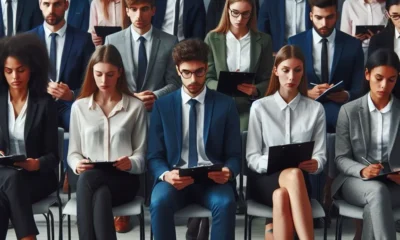
 Business2 months ago
Business2 months agoIndividually Proficient, Collectively Efficient; Why Your First Hire Matters
-

 Archives3 months ago
Archives3 months agoHow To Present Your Traction Slide with 7 Samples
-
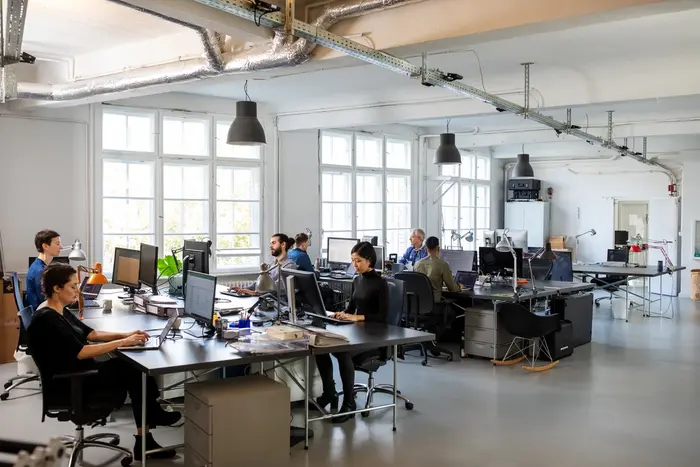
 Archives2 weeks ago
Archives2 weeks agoThe “two Speed” State Of Indian Market Adoption
-

 Archives2 months ago
Archives2 months agoHow Accelerators Make Money To Manage Operating Costs
-
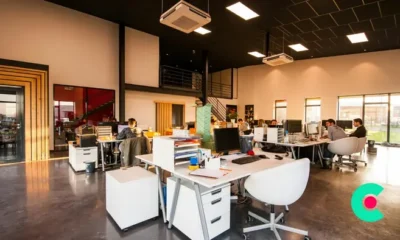
 Business2 weeks ago
Business2 weeks ago6 Affordable Co Working Space around the Globe
